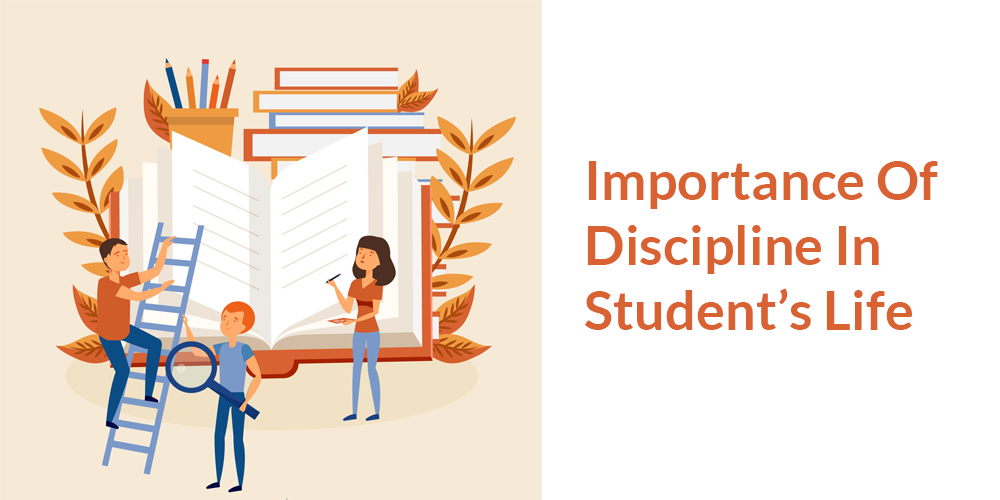
Disciplines give the students the character and direction they will need in future. It is essential for both life and success, helping the students develop the way to reach for their dreams and achieve the balance between study, extracurricular activities, and their personal life.
It is not something one learns to adhere to specific rules and regulations rather it is personal control which forms character, managing time and determined effort among students.
As we go into details further, we’ll understand what is meant by discipline, why students need it, and how it influences their lives.
Table of Contents
What is Discipline?
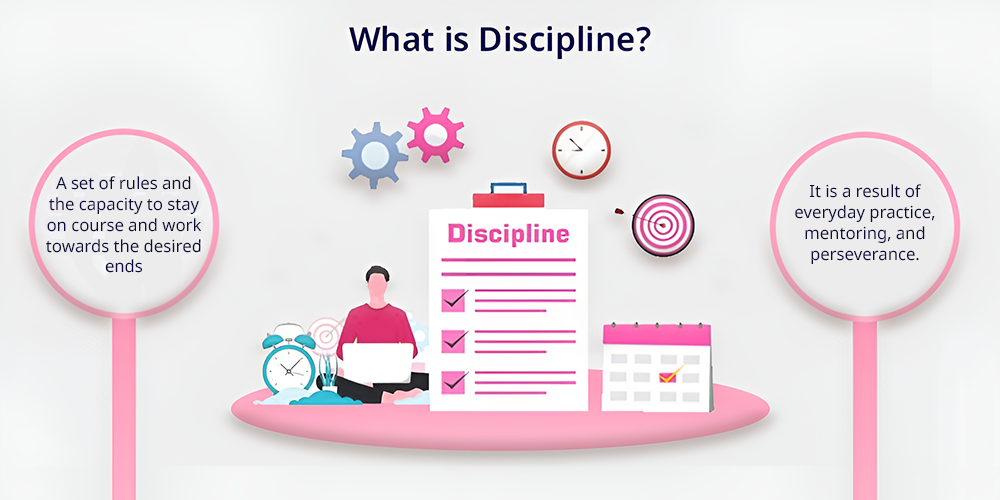
Discipline means following a set of rules and the capacity to stay on course and work towards the desired ends. It gives the ability to control over your emotions, actions and thoughts in order to meet the long-term goals.
To students discipline may refer to; time management, compliance with deadlines in doing assignments, respecting teachers and fellow students, and refraining from vices such as excessive use of social networks.
Discipline is not an inborn thing but a result of everyday practice, mentoring, and perseverance. It serves as a guide that points students in the right direction and assists them in developing the behaviours that determine success and happiness.
Why Discipline is Important in Students’ Lives?
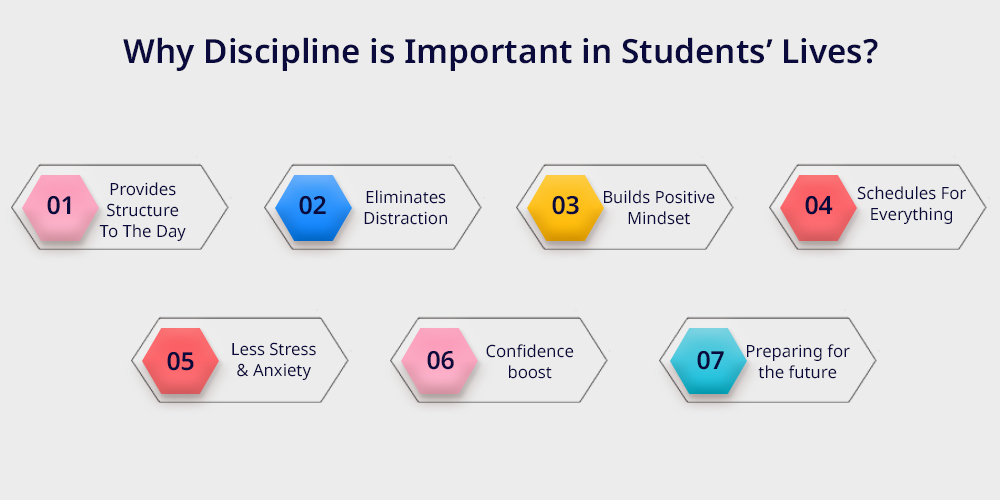
Discipline plays an essential role in a student’s progress because it frames the overall learning process in an academic environment, and indeed, in the student’s life.
Here are several reasons why discipline holds such immense importance:
1. Provides Structure To The Day
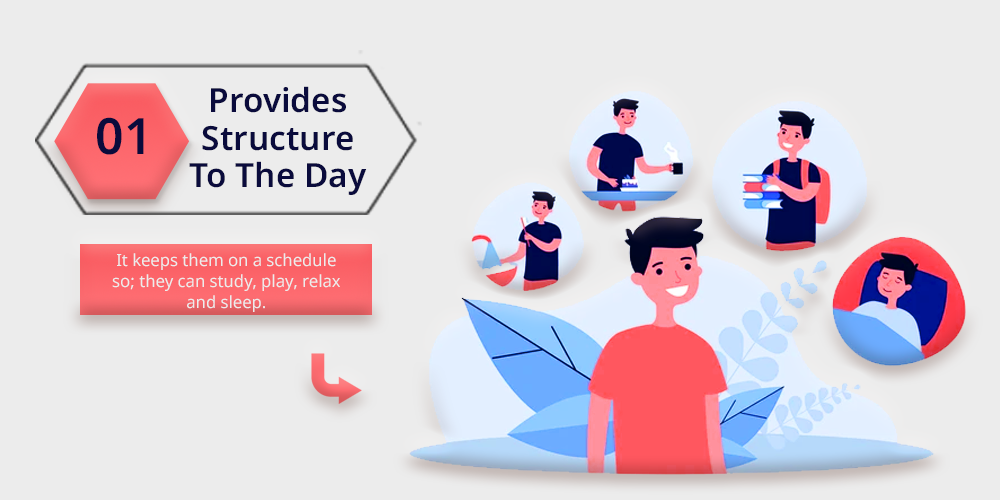
- Discipline guarantees that children have to stick to time without fail and this is very important especially for their productivity
- It keeps them on a schedule so; they can study, play, relax and sleep. Gives them enough time in a day to complete their overall work.
- It eliminates confusion and a student always knows what has to be done and even the time of doing it.
For instance, having a healthy morning schedule repels stress and makes learners concentrate on their goals without being in disturbances throughout the day.
2. Eliminates Distraction
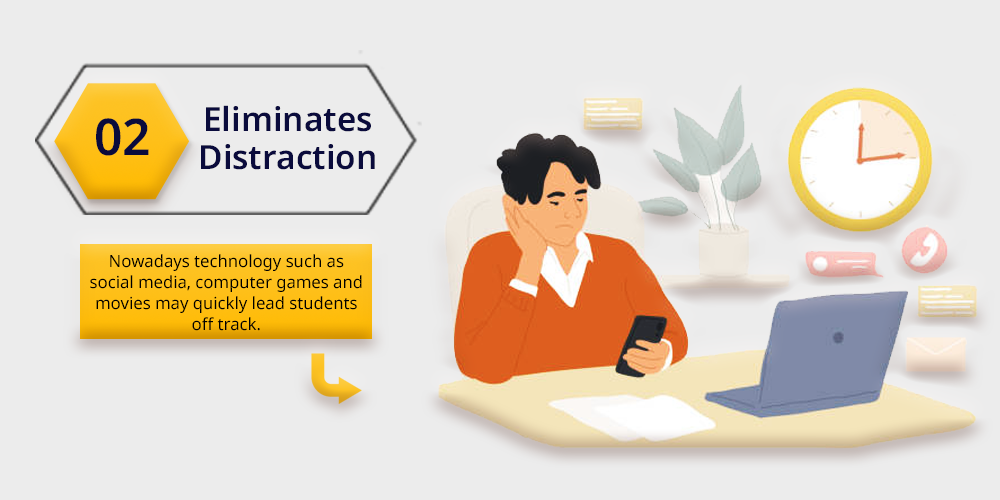
- Nowadays technology such as social media, computer games and movies may quickly lead students off track.
- Discipline helps them to be careful with time, teaches them to give priority to their work and helps them to control temptation which can make them lose time and energy.
Discipline students also tend to perform best in their studies and achieve their course objectives or what they intend to do in life more so, than undisciplined students.
3. Builds Positive Mindset
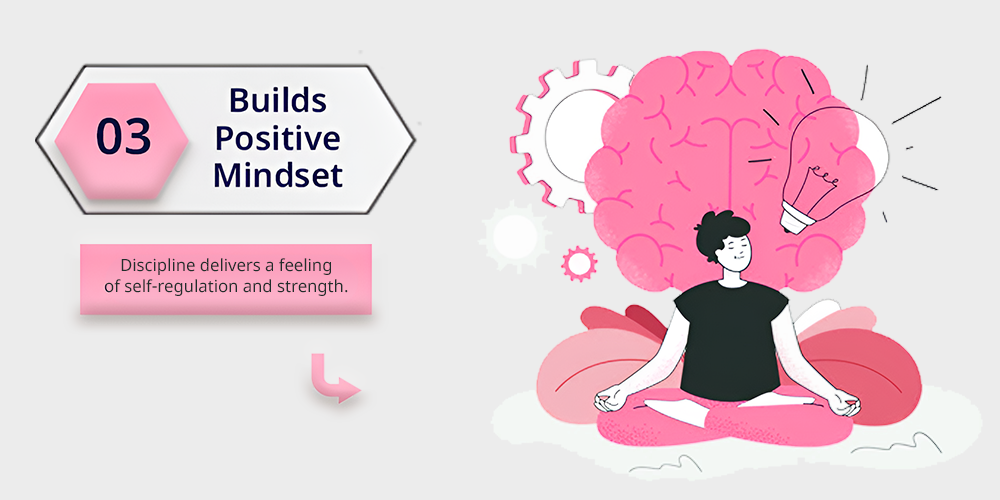
- Discipline delivers a feeling of self-regulation and strength, which ensures optimism in life.
- If students complete all their foremost tasks every day, their morale is boosted to promote excellent mental health.
This positivity is contagious, which means that whenever students are faced with any challenges they face them with the energy and confidence of a champion rather than being bogged down by fear or defeatist attitudes.
4. Schedules For Everything
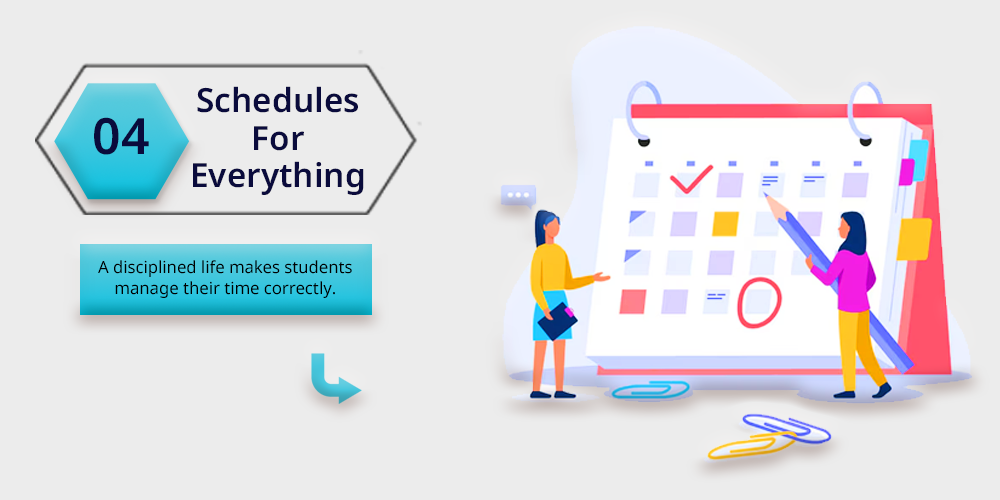
- A disciplined life makes students manage their time correctly, so they work hard in any sphere.
- Balanced scheduling involves the allocation of time for study, playtime, exercise and other activities for necessary family interaction.
For example, ear-marking hours for studying and playing games does not allow one to overdo it thus increasing concentration during the study period.
5. Less Stress & Anxiety
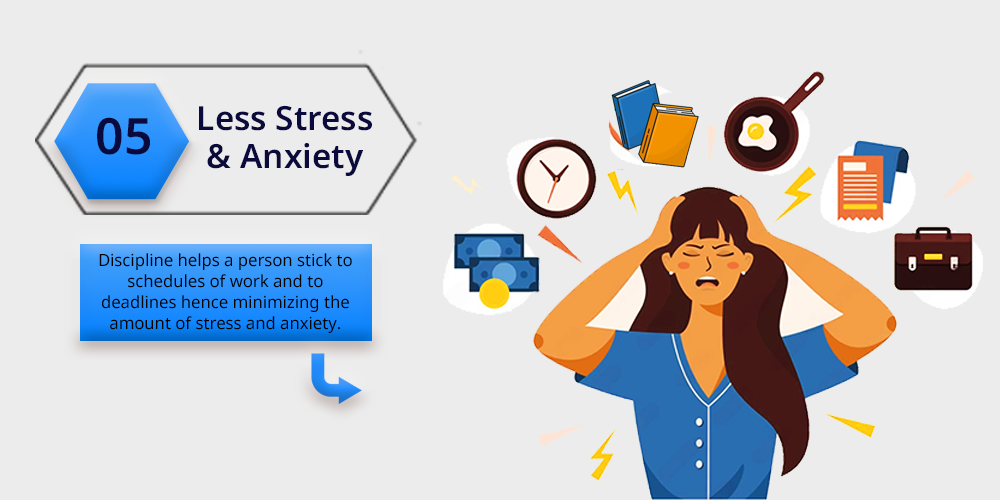
- With Discipline, the targeted learners do not cram in the last minutes to do the assignments, or to prepare for the tests.
- Discipline helps a person stick to schedules of work and to deadlines hence minimizing the amount of stress and anxiety that is associated with proper work schedules.
In addition, disciplined habits like exercise, meditation, or sleeping properly also enhance mental and emotional health.
6. Confidence boost

- Students learn small and major goals that are fertile grounds for a morale boost as instilled discipline demands.
- They also increase their confidence and feel a sense of accomplishment when they meet the intended goals most of the time.
It also goes to the extent of empowering the students in different fields of their lives, authority tasks and tasks and also expression.
7. Preparing for the future
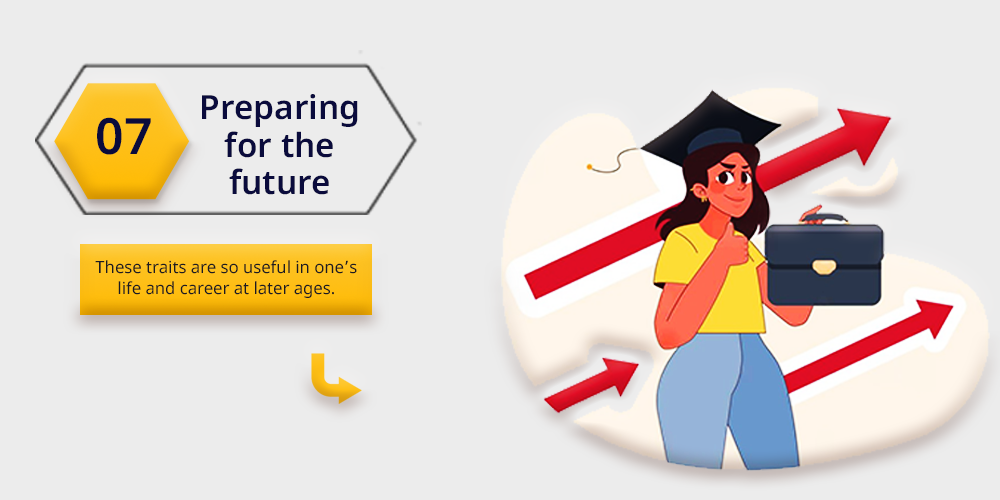
- Discipline motivates students to become responsible for their actions by making them practice responsibility, punctuality and hard work all in one single preparation for adulthood.
- These traits are so useful in one’s life and career at later ages.
Also Read, Prepare Children for the Future
For instance, in a competitive world, things such as the ability to avoid distractions while working on large assignments or being able to manage responsibilities from different areas are more important.
8. Single Tasking:
- Always prefer single-tasking, as multitasking is one of the major reasons for time constraints. Kids need to avoid multitasking in order to achieve productivity and efficiency.
- Kids must focus on a single task at a time. This allows to enhance critical thinking activities for kids.
9. Time Management:
- Time management is very much essential in students’ lives to balance their academic and personal goals.
- Proper time management skills will help children to enhance their ability to judge positively.
- Perfect time management skills will help students to live a healthy lifestyle and boost daily performance.
The Role of Discipline in Schools
Discipline is very much essential in school to stay organized. Promoting disciplines in schools and educational institutes is very necessary to maintain the rules and regulations.
Students who are disciplined are more successful and efficient and have better time management skills which helps them reach their objectives.
Through discipline, integrated education also develops positive outcomes. Below you can check the role of discipline in schools.
- Develop Social Skills: Discipline helps students to gain social skills. Disciplines play a major role in developing social skills among students and their peers. Through discipline, students are more prone to listening and following every rule and regulation that provides a diverse perspective.
- Change Behaviour: Through discipline, students develop a positive attitude that leads to a change in behaviour. The role of discipline in schools promotes kids to have a better understanding of rules and instructions which makes them more active and stronger.
- Better Management: Through discipline, it is easy to manage classroom strength and boost academic performance. Ineffective discipline makes it harder to control classroom dynamics and lowers educational standards, which creates chaos among students and teachers.
- Learning Environment: Discipline helps to create a proper learning environment for all students. Every school are implementing the importance of discipline in schools by discussing how important it is to create a positive learning environment and guaranteeing all students academic success.
- Tackling Challenges: Discipline is very much essential for tackling challenges. Through proper discipline, students can plan their tasks effectively which also helps in removing hindrances to life goals. Schools and academic institutions are also trying to implement lifelong discipline among students.
How the Pandemic Affected Discipline in Schools?
The coronavirus pandemic has changed the way we live and especially hampered students’ discipline. During the lockdown period, one has stuck to online learning only, which hampered the discipline among students.
Even pandemic ended a couple of years ago students still find it tough to cope with their comfort zone. COVID-19 has had a long-lasting effect on education causing backlogs, delays, and complicated problems for students who struggle in all learning stages.
The impact of COVID-19 recessions on teaching positions has also seen adverse effects. Here are the challenges faced after the pandemic in discipline among students.
- Lack of Attention: After the pandemic children’s faces lack of attention. Earlier children paid attention and learned from their mistakes, but after the pandemic, they found it challenging to pay proper attention. Even school teachers find it tough to use best teaching methods develop interest among them.
- Low Response: After the pandemic students have become less respondents. Teachers also stated that students are unable to follow instructions or respond to factual questions during classes which has become a challenge for teachers.
- Lack of Interest: Students find it tough to develop interest after the pandemic as they have relied on online learning only. Additionally, there has been a decrease in students’ engagement with learning activities group projects and regular classroom activities.
- Stressed: After the covid pandemic it is showing that most children have developed some complexes. They stay more stressed, angry, ecstatic and become more emotional. Because of this they become underdisciplined and become tough or teachers to deal with students.
- Lack of Communication: After the covid19 students find a lack of communication. As they have relied on online learning it becomes tough for them to socialize effectively and hinders their communication skills. They find it tough to communicate with their teachers and peers.
How to Build Self-Discipline in Students?
Building self-discipline is very much essential for students to achieve future success and gain professional success.
Students can develop self-discipline, but it will take time it can transform your life in a variety of ways. Here is how you can develop self-discipline.
1. Set Objective:
An objective or goal is very important for achieving success. Students should be encouraged to establish their own goals both academic and personal. Through clear goals, they can maintain discipline and vision.
2. Create Time Table:
A proper timetable is very much essential for building time management skills. A well-organized daily study routine gives students a feeling of direction. It reduces interruptions and aids in effective time management.
3. Learn from Failure:
One of the effective ways to build self-discipline is to learn from failure. It is essential for students to see failure or obstacles as opportunities. This set back them to fight against failure.
4. Consistent:
Consistency is the major factor for self-discipline. It is essential for students to develop a sense of consistency through proper routines, and habits.
5. Take Guidance:
Guidance is very important for developing self-discipline. If a student find it tough to develop discipline they can seek help or guidance from their parents or teachers.
Taking guidance from others will help to counter challenges and develop analytical skills.
Conclusion
Students who want to succeed academically and prepare for the future must practice discipline and effective time management.
Focusing on single-tasking establishing specific goals and making organized timetables can help students become more productive and acquire critical life skills.
Student discipline has been severely hampered by the pandemic which has resulted in problems like poor communication and attention span.
But students can overcome these challenges and lay a solid foundation for their future endeavors by cultivating self-discipline through regular routines learning from mistakes and asking for help.
All things considered establishing discipline in educational settings not only fosters a supportive learning environment but also gives students the skills they need to successfully handle lifes obstacles.
